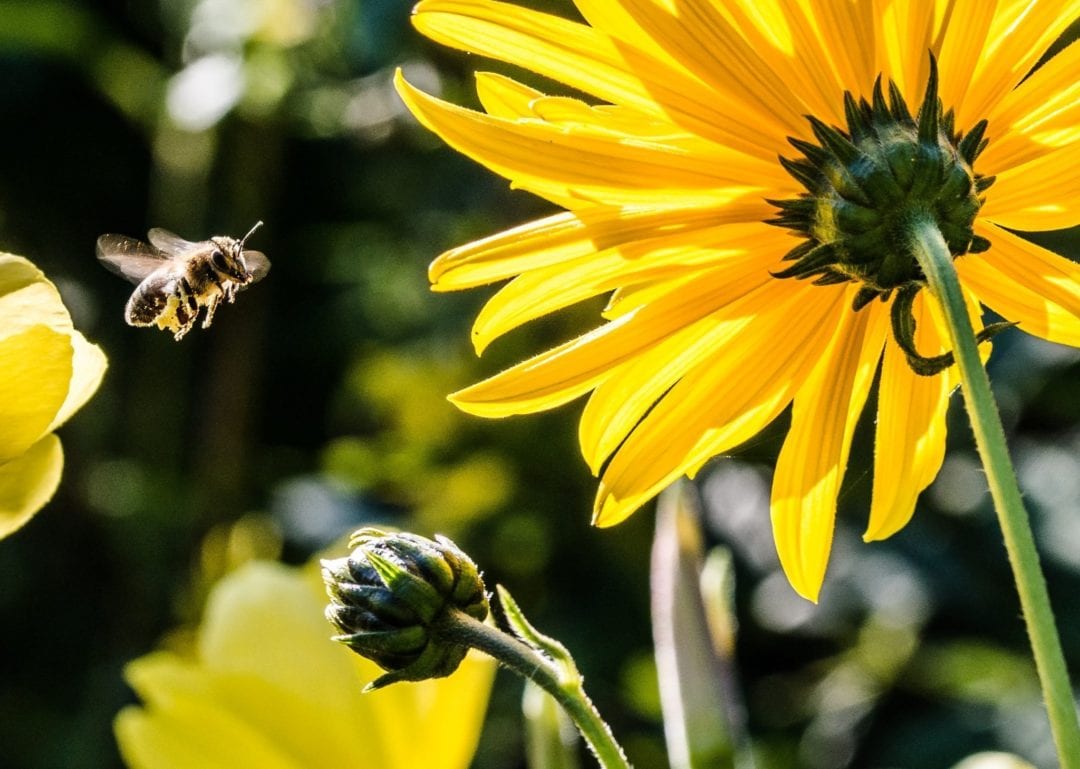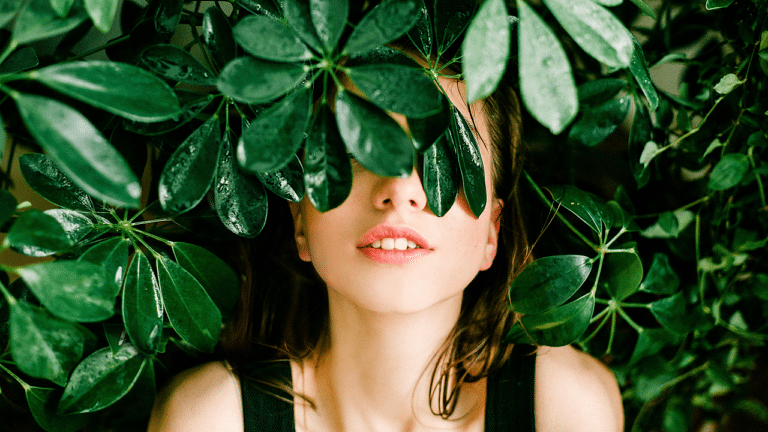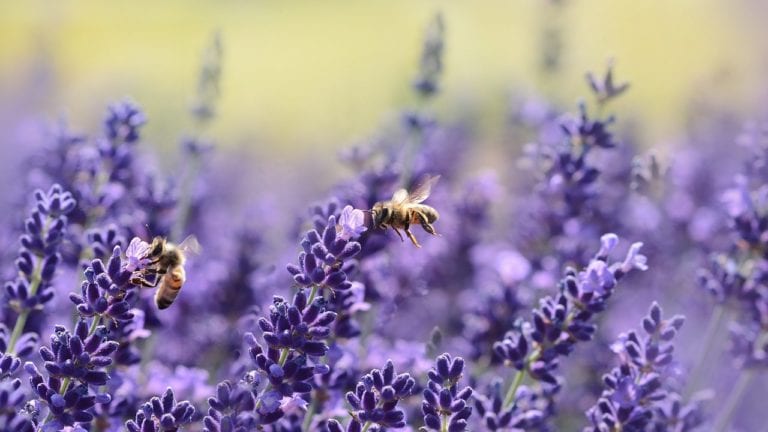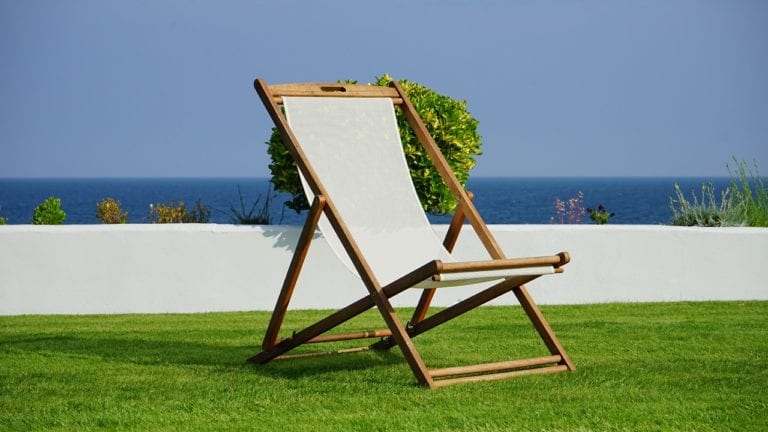Bees are hugely important in keeping your garden flowering beautifully.
Butterflies, bees and other flying insects visit plants to collect nectar and pollen, and by moving from flower to flower, they become vital pollinators of many garden and wild flowers. Some flowering plants are pollinated by the wind, but the majority rely on this service from insects, and without it plants would fail to produce seeds. Insect pollination is essential for the harvesting of most fruits, as well as some vegetables.
Wild bees and other pollinators are considered to be in decline in the UK. However, gardeners can help reduce this trend, and in return, pollinators will ensure your garden plants continue to flourish.
So what can you do to help?
- Plant nectar and pollen rich flowers to attract bees and other insects. – Look out for the RHS Perfect for Pollinators logo to easily identify suitable plants. The RHS has also created several useful ‘Perfect for Pollination’ lists, a few common suggestions include: Foxglove, Honeysuckle, Sweet William, Lavender and Jasmine.
- Group bee-friendly plants together and place them in sunny spots. – This will make them much more appealing than flowers which are scattered or in shaded areas.
- Grow a range of plants for all year flowering. – Selecting plants that flower for longer periods can also help ensure bees return regularly to your garden.
- Avoid plants with double or enclosed petal flowers. – These types of flowers can make it more difficult for insects to access the pollen.
- Never use pesticides on plants in flower. – This can directly harm pollinating insects.
- Provide nest sites for bees. – You can buy bee boxes at garden centres, or you can make your own.
- Provide sources of freshwater. – This may be in the form of a bird bath, water feature or even a pond, but be sure to provide rocks/shallow edges for the insects to rest on.
Many people worry that having an artificial lawn will impact the wild insect-life in their garden but as you can see from our tips above, you can have a beautiful artificial lawn, and still make your garden a great place for bees and insects!
If you’d like to know more about our products, why not request a free sample pack or view our article to see Trulawn used alongside beautiful, bee-friendly flowerbeds.



